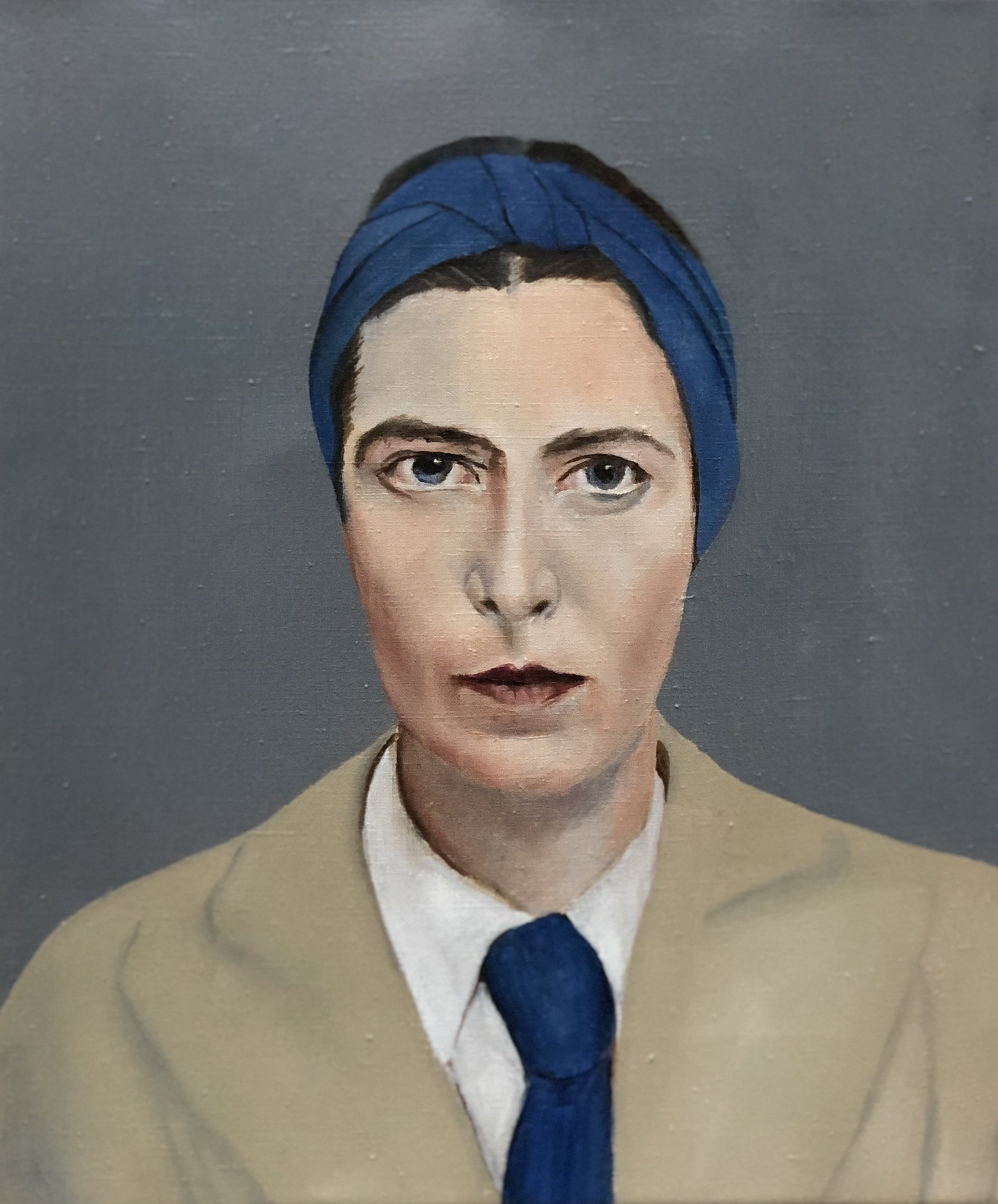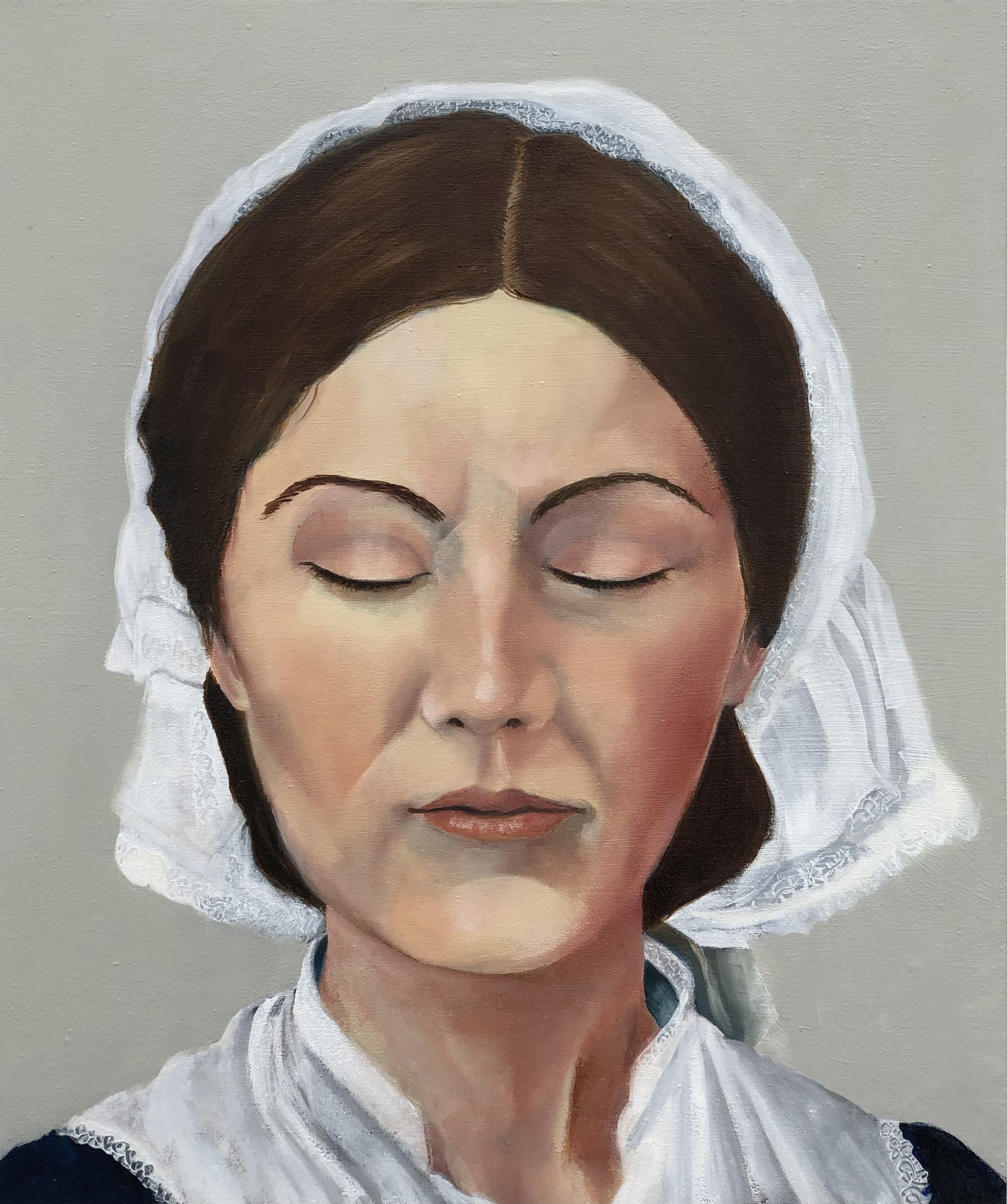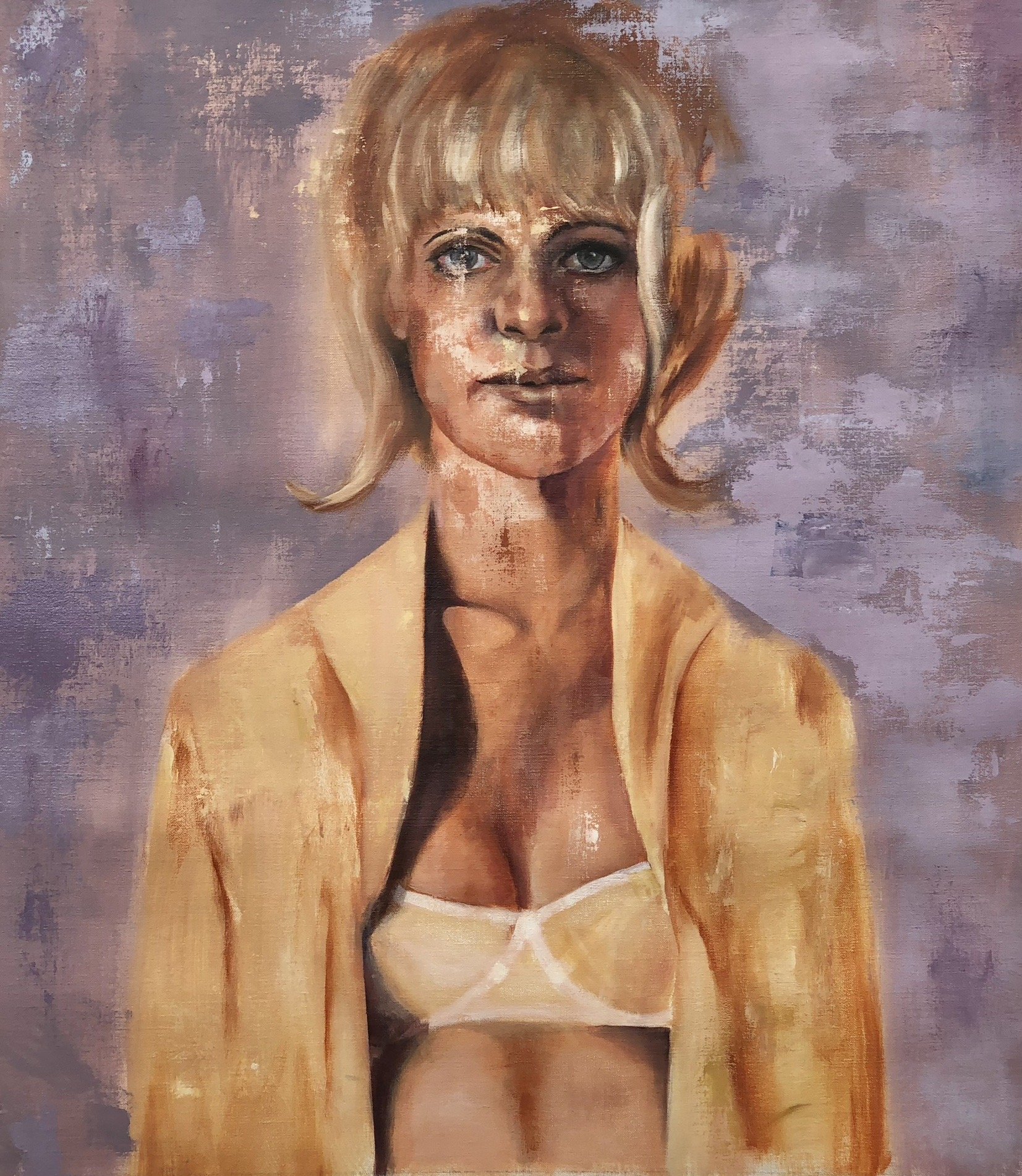Simone de Beauvoir was a French existentialist philosopher, writer, social theorist, and feminist activist. Though she did not consider herself a philosopher, nor was she considered one at the time of her death, she had a significant influence on both feminist existentialism and feminist theory.
Oil on Linen 35x30 cm
Beauvoir wrote novels, essays, short stories, biographies, autobiographies, and monographs on philosophy, politics, and social issues. She was best known for her "trailblazing work in feminist philosophy", The Second Sex (1949), a detailed analysis of women's oppression and a foundational tract of contemporary feminism. In the book Beauvoir asserted that women are as capable of choice as men, and thus can choose to elevate themselves, moving beyond the "immanence" to which they were previously resigned and reaching "transcendence", a position in which one takes responsibility for oneself and the world, where one chooses one's freedom.
Oil on Canvas 85x70 cm
She was also known for her novels, the most famous of which were She Came to Stay (1943) and The Mandarins (1954). She was nominated for the Nobel Prize in Literature in 1961, 1969 and 1973. However, Beauvoir generated controversy when she briefly lost her teaching job after being accused of sexually abusing some of her students.
Beauvoir died of pneumonia on 14 April 1986 in Paris, aged 78. She is buried next to Jean Paul Sartre at the Montparnasse Cemetery in Paris. She was honoured as a figure at the forefront of the struggle for women's rights around the time of her passing.




